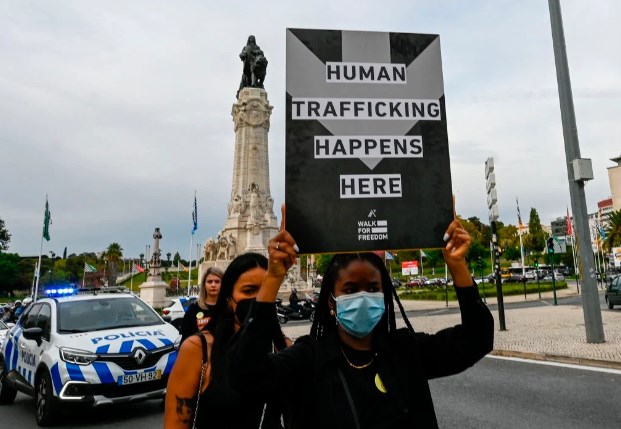
Saturday October 8, 2022

For every 1 000 people in Africa, 29 are in some form of slavery.
Horacio Villalobos#Corbis/Corbis via Getty Images
For every 1 000 people in Africa, 29 worked as forced
labourers in 2021, and most of them were children and women.
This is according to a new report by United Nations (UN)
bodies the International Labour Organisation (ILO) and the International
Organisation for Migration (IOM) as well as the organisation Walk Free.
The report, titled "2021 Global Estimates of Modern Slavery:
Forced Labour and Forced Marriage", covered all continents.
Africa had the lowest rate of slavery at 2.9% per 1 000
people. Arab states had a rate of 5.3% per 1 000 people, Europe and Central
Asia 4.4%, and both the Americas, Asia and the Pacific had 3.5%.
But in terms of population distribution, the report stated
that 3.8 million people in Africa were experiencing forced labour, which was
14% of the global share.
Globally, "the number in forced labour exploitation
went up by 1.3 million and the number in forced commercial sexual exploitation
rose by an even larger number – 1.5 million – over the 2016 to 2021
period," the report read.
The sharp increase was attributed to the Covid-19 pandemic
and the economic shockwaves, job destruction, and rise in poverty accompanying
it, leaving millions of workers worldwide in situations of heightened
vulnerability.
The report noted that an ever-increasing number of children
were experiencing forced commercial sexual exploitation in areas of conflict
such as the Democratic Republic of the Congo (DRC), South Sudan, Sudan, Mali,
and the Central African Republic.
The report stated: Many are trafficked into such situations,
ending up far from their homes and families.
In some parts of Africa, there are entrenched systems of
domestic bondage involving children.
In Benin, there is "vidomegon", a system whereby
poor families send children to live as servants with wealthier families.
Over the years, it has become a lucrative underground
business, and children, aged three to 15, are sold as slaves.
In Togo, it's called "confiage".
Although there has been some lobbying to end child slavery
in Mali and Mauritania, there is still a relatively high prevalence in some
sectors of the traditional economy.
The report said: In countries such as Mali and Mauritania,
despite some progress, hereditary slavery practices affecting entire families
persist in some areas. These practices see children starting lives in slavery
in activities such as cattle herding, fieldwork, and domestic work.
In the Sahel region covering Burkina Faso, Cameroon, Chad,
The Gambia, Guinea, Mauritania, Mali, Niger, Nigeria, and Senegal, child
beggars are a prominent feature.
Child beggars were usually "required to beg by
religious teachers with whom they are sent to live, ostensibly for spiritual
guidance".
It is reported that 20 countries globally have a problem
with child soldiers recruited in conflict zones.
In Africa, the hotspots are DRC, Mali, Nigeria, Somalia,
South Sudan, and Sudan.
In these areas, besides direct participation in fighting at
times, they were used as human shields, intelligence gatherers and bodyguards,
as well as for landmine clearance.
In some parts of Africa, political and freedom of speech
victims were jailed with hard labour.
The Committee of Experts on the Application of Conventions
(CEACR) is an ILO branch that deals with lobbying governments to ratify
international laws and treaties.
In Africa, it has engaged the governments of Burundi,
Algeria, Benin, Tanzania and Zimbabwe to stop these practices on people
detained for non-violent political offences.